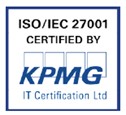Screening of Foreign Investments Changing in the EU – How Will It Affect Finland?
12 May 2020
Authors: Linnea Lehtonen, Maisa Cederström and Heidi Haanpää
In brief
- In Finland, acquisitions by certain foreign buyers of defence sector businesses and businesses that are critical for securing vital functions of society are subject to screening by the Ministry of Economic Affairs and Employment. If very important national interest so requires, the transfer of influence to foreign buyers may be restricted. As regards the defence sector businesses, the monitoring covers all foreign buyers. In other sectors, the monitoring applies to foreign buyers domiciled outside the EU or EFTA.
- The EU Foreign Direct Investment Screening Regulation introduces a mechanism for cooperation whereby the Member States and the Commission can exchange information on and express their views with regard to foreign direct investments that are likely to affect security or public order.
- The Finnish legislation on investment screening is being updated to reflect certain aspects of the EU screening framework. In addition, some other changes are proposed to national legislation, including a possibility for the authorities to impose conditions for the approval of an acquisition and that acquisitions of certain businesses acting in the security sector would be subject to mandatory advance approval process.
- The EU screening mechanism can be expected to somewhat increase the processing times and to broaden information requirements in the filing process of foreign corporate acquisitions in Finland.
- In the future, we may see more vigorous review processes and the introduction of conditions to the transactions.
Already prior to the ongoing COVID-19 crisis, we have seen a rise of protectionism around the globe. This development has become more pronounced with the COVID-19 pandemic and its effects on global supply chains, including the supply of protective equipment within healthcare as well as the security of supply on a more general level. At the same time, the crisis may increase global interest in the acquisition of healthcare and research capacities for the development of vaccines, for instance. Many countries are currently assessing their regulation on the scrutiny of foreign investments to ensure their compatibility with the national interest. Coincidentally, the foreign investment screening framework of the EU that establishes a mechanism for the exchange of information between Member States and the European Commission on certain foreign direct investments will be applied from October 2020.
According to the Commission, there are currently 14 EU Member States that have national foreign direct investment screening mechanisms, Finland being one of them. In addition to the EU, for instance the United States has a committee which assesses the effect of certain transactions on the national security (Committee on Foreign Investment in the United States (CFIUS)).
European Foreign Investment Screening – Introduction of New Mechanisms
The Regulation of the European Parliament and of the Council on establishing a framework for the screening of foreign direct investments will be applied as of 11 October 2020. The regulation sets forth a mechanism for cooperation between Member States and the Commission with regard to foreign direct investments that are likely to affect security or public order. As such, it depends on the national legislation of each Member State whether a particular foreign investment is screened, but a Member State must inform the Commission and other Member States of any screened foreign direct investment. In turn, the Commission and other Member States may issue opinions and comments to the screening Member State. As regards a foreign direct investment that is not subject to screening in the particular Member State, the Commission and other Member States may request information and express their views on the investment if they consider that the investment is likely to affect security or public order or if they have essential information in relation to the investment. Views may be expressed up to 15 months after completion of the investment.
The regulation does not give the Commission or any other Member State the power to prevent a foreign investment, but the screening Member State must give due consideration to the comments and opinions of the other Member States and the Commission. The relevant Member State will make the final decision whether a certain foreign investment is approved or not.
Given the COVID-19 crisis and its economic consequences for the EU, the Commission recently issued new “guidelines to ensure a strong EU-wide approach to foreign direct investment screening” with an aim to protect EU companies, including those operating in the fields of health, medical research, biotechnology, and infrastructures that are essential for security and public order, particularly during the COVID-19 outbreak. In its guidelines, the Commission urges Member States to make full use of their existing screening mechanisms to prevent foreign acquisitions that could undermine security or public order in the EU and calls upon those Member States that currently do not have an appropriate mechanism to set up a full-fledged screening mechanism.
Finland Updates Its Act on the Monitoring of Foreign Corporate Acquisitions
The EU Member States have different screening mechanisms in place. In Finland, the current Act on the Monitoring of Foreign Corporate Acquisitions became effective in 2012 with the aim to monitor and, if very important national interest so requires, limit the transfer of influence in the monitored businesses to foreign buyers. The monitoring, conducted by the Ministry of Economic Affairs and Employment, currently applies to businesses acting in the defence sector and businesses that are considered critical for securing vital functions of society. As regards the defence sector businesses, the monitoring covers all foreign buyers and the acquisitions require an advance approval of the Ministry. In other sectors, the monitoring applies to foreign buyers domiciled outside the EU or EFTA, and it is not mandatory to obtain an approval in advance of the acquisition.
In February, the Ministry published a draft government proposal for the amendment of the Act on the Monitoring of Foreign Corporate Acquisitions to reflect the requirements of the EU investment screening regulation. In addition, the draft government proposal introduces a few other changes, including that acquisitions of certain businesses acting in the security sector would be subject to the same advance approval process as the defence sector acquisitions. The draft also introduces a possibility for the Ministry to impose conditions for the approval of an acquisition (as compared to the current situation where the approval can only be granted or denied), to make a decision not to screen a particular acquisition if the Ministry considers that it does not fall under the scope of the monitoring, and to order a transaction that aims to circumvent the monitoring to be filed with the Ministry.
The final government proposal is expected to be submitted to the Finnish Parliament in June 2020, and the proposed national legislation is intended to enter into force on 11 October 2020.
Impacts on International Cross-Border Transactions
The presented changes in the EU and national regulations will affect transaction processes in international deals. In fact, the processing times of the Ministry concerning the approval of foreign corporate acquisitions can be expected to somewhat increase due to the exchange of information between Member States and the Commission. Additionally, given that Members States are required to provide detailed information, such as the source of the funding for the investment and its approximate value, to the Commission and other Member States as a part of the cooperation mechanism, it is expected that information requirements in the filing process will be broadened compared to the current situation.
The COVID-19 crisis and the related awakening to concerns relating to the security of supply may also lead to more vigorous review processes and the introduction of conditions to the transactions. For instance, in the aforementioned guidelines, the Commission mentions conditions guaranteeing the supply of medical products or devices beyond the estimated needs of the screening Member State as an example of measures mitigating the concerns of a foreign direct investment.
Through years of experience and constant flow of deals, Hannes Snellman has deep expertise on the foreign investment screening legislation in Finland and its interpretation and effects on a practical level. On a regular basis, we handle communications with the Ministry on the monitoring of foreign corporate acquisitions.
Based on our experience, often the biggest challenges of the Finnish foreign investment screening in connection with international transactions relate to the uncertainties that the screening introduces to the deal - in short, the effects on the deal security. In addition to the wider question on the allocation of the execution risk between the parties to the transaction in general, there may be uncertainty, for instance, on the scope of application of the screening legislation and the length of the screening process. As the Ministry requested statements to the aforementioned draft government proposal, Hannes Snellman commented on the draft suggesting clarifications to the screening process and the scope of the act, among other things.
The foreign investment experts of our Corporate Advisory and M&A team are closely following the mentioned legislative drafting. For any related legal questions or issues, please do not hesitate to contact us.







